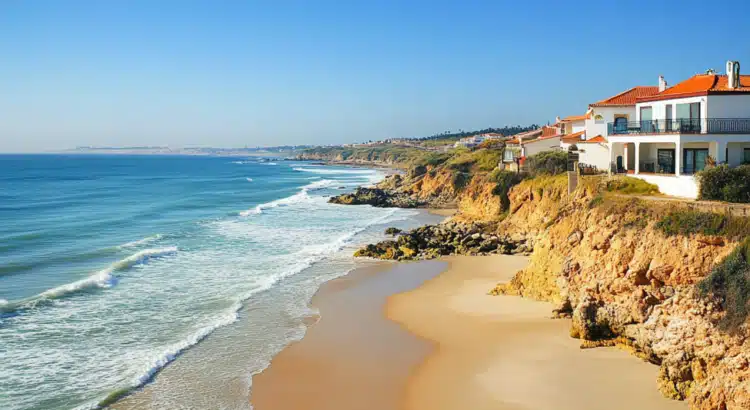Portugal’s charm, combining modern sophistication with old-world allure, has sparked global interest among travelers and prospective residents alike. For individuals who can rely on stable, independent earnings, the D7 visa Portugal https://firstlegal.group/services/visas/d7 provides a direct route to relocating. This guide offers a detailed look at the requirements, procedures, and lifestyle benefits of making Portugal your long-term home.
Defining the D7 Portugal Visa
The d7 portugal visa was created with financial independence in mind, targeting people whose monthly income doesn’t rely on working for a Portuguese employer. This category often includes retirees, remote workers, and self-employed individuals. While some visas demand property purchases or large investments, the visa d7 Portugal lowers the financial barriers, focusing primarily on consistent income streams.
Once you arrive and secure your residency, you gain the flexibility to discover Portugal’s multitude of regions—from the sun-soaked Algarve to the peaceful landscapes of the Alentejo and the bustling cultural centers of Lisbon and Porto.
Core Portugal D7 Visa Requirements
Prospective applicants must meet the following portugal d7 visa requirements:
1. Financial Stability
You will need to prove that you can fully support yourself (and any dependents, if applicable). This can be shown through pensions, documented freelance agreements, or steady investment returns. While the exact monthly minimum can vary, it tends to align with or surpass Portugal’s minimum wage.
2. Valid Accommodation
A permanent address in Portugal is a must. Whether you rent or buy property, you’ll need an official contract or deed to show that you have secured a legitimate place to reside.
3. Clean Criminal Record
Part of the d7 visa requirements Portugal involves submitting recent police clearance certificates from your home country (and sometimes from any countries in which you’ve lived for a significant period).
4. Comprehensive Health Insurance
Proof of health coverage is mandatory, ensuring applicants won’t be a burden on Portugal’s public health services. Many opt for international policies that span the entire Schengen area.
5. Valid Passport
Your passport should be current for at least six months beyond your planned entry date into Portugal.
By verifying that all d7 visa Portugal requirements are met, you position yourself favorably for a swift and successful application process.
Navigating the Application Process
1. Initial Research
Each Portuguese consulate or embassy may have slightly different processes. Begin by examining your local consulate’s official website for specific guidance.
2. Document Collection
Gather your financial proofs—such as pension statements, bank records, and letters from freelance clients. Secure your health insurance and obtain your criminal record check. Also, secure a housing arrangement in Portugal to prove your residence address.
3. Submission and Review
Most consulates will accept applications by appointment. Some may ask you to attend a short interview to clarify the purpose of your move. Present your paperwork, carefully organized, to facilitate a smoother evaluation.
4. Receiving the Temporary D7 Visa
If approved, you’ll be awarded a visa valid for four months. This document allows you to enter Portugal and finalize your residency application with SEF (Serviço de Estrangeiros e Fronteiras).
5. SEF Appointment and Residency Permit
Arriving in Portugal, schedule an appointment with SEF to submit any updated documents and confirm your local address. After this step, you receive your official resident card under the Portugal d7 visa framework.
Daily Life with the D7 Visa in Portugal
1. Cultural Adaptation
Portugal’s culture is a blend of history and hospitality. From the evocative melodies of fado to the ornate azulejo tiles decorating buildings, you’ll find rich traditions in daily life. While Portuguese is the official language, English is commonly spoken in urban hubs and tourist areas, making initial adaptation smoother.
2. Cost of Living
Many expats note that daily expenses in Portugal are relatively manageable compared to other Western European countries. Groceries, dining out, and public transportation often fit moderate budgets well, especially if you avoid the busiest tourist zones.
3. Healthcare and Education
The public healthcare system in Portugal is generally of a high standard, but many newcomers prefer supplemental private health plans for shorter wait times. If you have children, you’ll find both public and private schooling options, with some international schools offering curriculum in English or other languages.
4. Community and Social Life
Thanks to the growing number of foreign residents, you’ll discover lively expatriate networks hosting regular meetups and events. These gatherings can provide support and companionship as you settle in. Meanwhile, local Portuguese communities typically welcome newcomers, and attempts to speak Portuguese—even at a basic level—are often met with appreciation.
Renewing and Advancing to Permanent Status
Once you hold a d7 visa in Portugal, your residence permit is usually valid for one to two years. Renewal requires meeting similar financial and legal criteria each time. After five years of legally residing in Portugal, you can typically file for permanent residency or citizenship, assuming you meet language proficiency and civic integration criteria.
This progression to permanent status offers more security and the freedom to live long-term in a peaceful European country. For many, the ultimate goal is Portuguese citizenship, which also confers the benefit of an EU passport, broadening travel and work opportunities across Europe.
Potential Pitfalls and Advice
While the d7 visa for Portugal is renowned for its relatively straightforward approach, applicants must ensure absolute accuracy in their documentation. Delays can happen if your criminal record checks are outdated or if translations aren’t notarized when required. It’s wise to start compiling paperwork early and consult with professionals if you’re uncertain about specific requirements.
It also helps to connect with online communities focused on the d7 visa Portugal. Such forums offer firsthand accounts and tips from individuals who have successfully navigated the process before you.
For those with consistent, independent income, the d7 visa for Portugal stands out as one of the most inviting opportunities in Europe. Portugal’s blend of scenic landscapes, rich cultural heritage, and welcoming population makes it an excellent place to lay down roots. Through methodical preparation—ensuring you satisfy the Portugal d7 visa requirements—you can position yourself for a smooth transition. Whether your dream is to wander the alleyways of ancient cities, bask on sunlit beaches, or simply enjoy Europe’s pace of life, the D7 Visa in Portugal can turn that vision into a sustainable reality.









